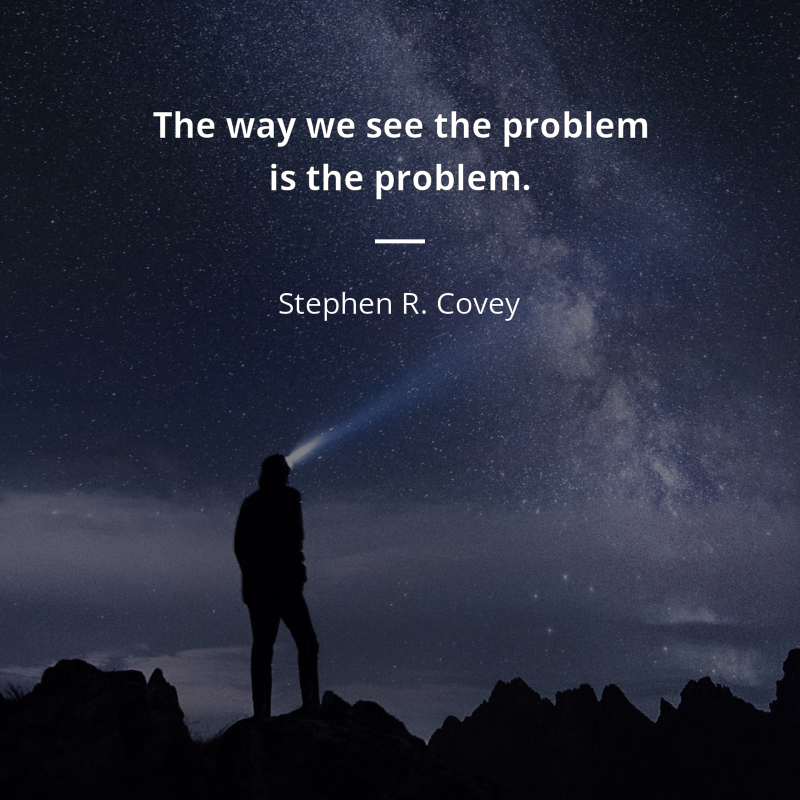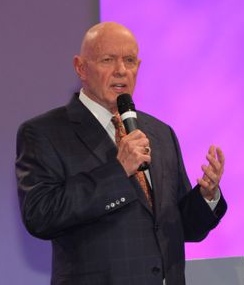Frases célebres de Stephen R. Covey
Los 7 hábitos de la gente altamente efectiva. Ed. revisada y actualizada
“entre el estímulo y la respuesta, el ser humano tiene la libertad interior de elegir.”
Los 7 hábitos de la gente altamente efectiva. Ed. revisada y actualizada
Los 7 hábitos de la gente altamente efectiva. Ed. revisada y actualizada
Frases sobre problemas de Stephen R. Covey
Los 7 hábitos de la gente altamente efectiva. Ed. revisada y actualizada
“Un serio problema del lenguaje reactivo es que se convierte en una profecía de autocumplimiento.”
Los 7 hábitos de la gente altamente efectiva. Ed. revisada y actualizada
Los 7 hábitos de la gente altamente efectiva. Ed. revisada y actualizada
Stephen R. Covey Frases y Citas
Los 7 hábitos de la gente altamente efectiva. Ed. revisada y actualizada
Las 12 palancas del éxito: Hacia la grandeza primordial
Los 7 hábitos de la gente altamente efectiva. Ed. revisada y actualizada
Asegurar resultados en tiempos de incertidumbre
Los 7 hábitos de la gente altamente efectiva. Ed. revisada y actualizada
Los 7 hábitos de la gente altamente efectiva. Ed. revisada y actualizada
Los 7 hábitos de la gente altamente efectiva. Ed. revisada y actualizada
Los 7 hábitos de la gente altamente efectiva. Ed. revisada y actualizada
Las 12 palancas del éxito: Hacia la grandeza primordial
Los 7 hábitos de la gente altamente efectiva. Ed. revisada y actualizada
Los 7 hábitos de la gente altamente efectiva. Ed. revisada y actualizada
Los 7 hábitos de la gente altamente efectiva. Ed. revisada y actualizada
Stephen R. Covey: Frases en inglés

Fuente: The 7 Habits of Highly Effective People
“Most people do not listen with the intent to understand; they listen with the intent to reply.”
Fuente: The Seven Habits Of Highly Effective People (1989), p. 239
Fuente: The 7 Habits of Highly Effective People: Powerful Lessons in Personal Change
Fuente: The 7 Habits of Highly Effective People
Fuente: The Seven Habits Of Highly Effective People (1989), p. 101
“Trust is the glue that holds everything together.”
Fuente: First Things First (1994), p. 243 <!-- Originally added as a paraphrase : The moment of making choice is the moment of truth! -->
Contexto: Trust is the glue that holds everything together. It creates the environment in which all of the other elements — win-win stewardship agreements, self-directing individuals and teams, aligned structures and systems, and accountability — can flourish.
“Give no answer to contentious arguments or irresponsible accusations.”
Fuente: Principle-Centered Leadership (1992), Ch. 11
Contexto: Give no answer to contentious arguments or irresponsible accusations. Let such things "fly out open windows" until they spend themselves.
“Retire from your job but never from meaningful projects.”
The 8th Habit : From Effectiveness to Greatness (2004)
Contexto: Retire from your job but never from meaningful projects. If you want to live a long life, you need eustress, that is, a deep sense of meaning and contribution to worthy projects and causes, particularly your intergenerational family.
The 8th Habit : From Effectiveness to Greatness (2004), p. 63
“Ineffective people live day after day with unused potential.”
Fuente: The 7 Habits of Highly Effective People: Powerful Lessons in Personal Change
“Admission of ignorance is often the first step in our education.”
Fuente: The 7 Habits of Highly Effective People: Powerful Lessons in Personal Change
As quoted in Teaching Sport and Physical Activity : Insights on the Road to Excellence (2003) Paul G. Schempp, p. 79
Fuente: Principle-Centered Leadership (1992), Ch. 11
Contexto: Unless we exercise our power to choose wisely, our actions will be determined by conditions. Our ultimate freedom is the right and power to decide how anybody or anything outside ourselves will affect us.
Fuente: The 7 Habits of Highly Effective People: Powerful Lessons in Personal Change
Fuente: The 7 Habits of Highly Effective People: Powerful Lessons in Personal Change
“Selfless service has always been one of the most powerful methods of influence.”
Fuente: Principle-Centered Leadership (1992), Ch. 11
Contexto: Perform anonymous service. Whenever we do good for others anonymously, our sense of intrinsic worth and self-respect increases. … Selfless service has always been one of the most powerful methods of influence.
“Let natural consequences teach responsible behavior.”
Fuente: Principle-Centered Leadership (1992), Ch. 11
Contexto: Let natural consequences teach responsible behavior. One of the kindest things we can do is to let the natural or logical consequences of people's actions teach them responsible behavior. They may not like it or us, but popularity is a fickle standard by which to measure character development. Insisting on justice demands more true love, not less. We care enough for their growth and security to suffer their displeasure.
The 8th Habit : From Effectiveness to Greatness (2004)
Contexto: Values are social norms — they're personal, emotional, subjective, and arguable. All of us have values. Even criminals have values. The question you must ask yourself is, Are your values based upon principles? In the last analysis, principles are natural laws — they're impersonal, factual, objective and self-evident. Consequences are governed by principles and behavior is governed by values; therefore, value principles!
p. 49
Fuente: First Things First (1994), p. 113
Contexto: It's not enough to have values without vision; you want to be good, but you want to be good for something. On the other hand, vision without values can create a Hitler. An empowering mission statement deals with both character and competence; what you want to be and what you want to do in your life.
principles such as fairness, kindness, respect, honesty, integrity, service, contribution. Different cultures may translate these principles into different practices and over time may even totally obscure these principles through the wrongful use of freedom. Nevertheless, they are present. Like the law of gravity, they operate constantly.
p. 47
The 8th Habit : From Effectiveness to Greatness (2004)
The 8th Habit : From Effectiveness to Greatness (2004)
Contexto: Values are social norms — they're personal, emotional, subjective, and arguable. All of us have values. Even criminals have values. The question you must ask yourself is, Are your values based upon principles? In the last analysis, principles are natural laws — they're impersonal, factual, objective and self-evident. Consequences are governed by principles and behavior is governed by values; therefore, value principles!
p. 49
“Are your values based upon principles?”
Fuente: The 8th Habit : From Effectiveness to Greatness (2004), p. 49
Contexto: Values are social norms — they're personal, emotional, subjective, and arguable. All of us have values. Even criminals have values. The question you must ask yourself is, Are your values based upon principles? In the last analysis, principles are natural laws — they're impersonal, factual, objective and self-evident. Consequences are governed by principles and behavior is governed by values; therefore, value principles!
Fuente: First Things First (1994), p. 12 <!-- Originally added as : Instead of taking two watches, take compass. It is not important how fast you are moving, but where you are moving. -->
Contexto: We present a dramatically different approach to time management. This is a principle-centered approach. It transcends the traditional prescriptions of faster, harder, smarter, and more. Rather than offering you another clock, this approach provides you with a compass — because more important than how fast you're going, is where you're headed.
The 8th Habit : From Effectiveness to Greatness (2004)
Contexto: Principles are universal — that is, they transcend culture and geography. They're also timeless, they never change — principles such as fairness, kindness, respect, honesty, integrity, service, contribution. Different cultures may translate these principles into different practices and over time may even totally obscure these principles through the wrongful use of freedom. Nevertheless, they are present. Like the law of gravity, they operate constantly.
p. 47
